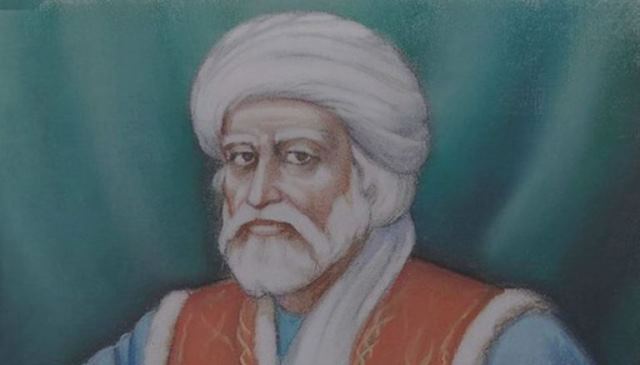By Fakhar-e-Alam
PESHAWAR, Apr 6 (APP):: Khyber Pakhtunkhwa is a unique province of Pakistan having a vibrant cultural history and its literary tradition is deeply rooted in the expressions of its native poets.
Preservation and promoting region’s culture, language and history, these native poets of Urdu, Pashto, Hindko, Chitrali, Hazarwal, Serakai, Kohistani, Gojri and others languages reflect diverse history, blending themes of love and traditions, valor, warmth, mysticism, social justice and mutual coexistence.
Standing tall among them is Khushal Khan Khattak (1613–1689), often regarded as Father of Pashto literature for his versatile poetry, covering themes of unity of Pashtun tribes, patriotism and education.
“He was not just a poet, but a great warrior and a statesman, who stood tall for freedom,” said Professor Dr Abbasin Yousafzai, an educationist from Islamia College Peshawar.
“His poetry delves into ethics of leadership, unity of Pakhtoon tribes and struggle against foreign invasion. His most famous work, Khushal Khan Khattak’s Diwan, remains a cornerstone of Pashto literature,” Dr Abbasin said. “Pashto literature and Khushal Baba can’t be separated.”
In the rich landscape of Pashto literature, Rahman Baba (1632-1706) is another icon recognized as ‘Prince of Pashto Poets’ with his unparalleled contributions to cultural and literary heritage. His spiritual poetry transcended his era, leaving a lasting impact on readers’ minds.
“Being a devout Sufi, his spiritual beliefs played a central role in shaping his poetic voice, marked by deep introspection, yearning for divine love and a profound sense of humanism,” remarked Dr Abbasin. “His poetry, written primarily in Pashto, reflects both the beauty of natural world and human soul.”
“Unlike contemporary poets, Rahman Baba did not seek fame or fortune. He lived a modest life, dedicated to his craft and spiritual pursuits. His poems reflect themes of deep connection with his homeland, faith, mysticism and quest for inner peace,” he said.
Dr. Yousafzai said Rahman Baba’s most famous theme is idea of self-purification and surrendering before Allah. “His verses encourage readers to look beyond worldly attachments and focus on spiritual growth. He often emphasized love for God, peace and unity among Pashtuns and across the Muslim world.”
Known for nonviolence movement in the region, great Pashto poet of Hashtnagar, Abdul Ghaffar Khan (1890–1988) alias Bacha Khan has used his pen for freedom against colonial rule. “He was not a political leader but a poet as well whose poems were focused on peace, unity, freedom and rights of Pashtuns.
His famous work, “Khudai Khidmatgar” (Servants of God), encouraged the Pashtuns to embrace nonviolent resistance against colonial masters while maintaining their dignity as his poetry echoed a message of unity, selflessness and service to the Pashtuns community.
Amir Hamza Khan Shinwari (1907-1994)—another iconic Pashto poet has touched hearts of Pashto lovers as his works focused formation of Pashto epic literature.
“His epic narratives combine elements of folklore, romance and adventure. His poems, much like those of Khushal Khan Khattak, served both as entertainment and as a source for cultural preservation and moral instruction,” said Dr Shaheen.
Another philosopher, artist and poet was Ghani Khan (1914-1996). Being one of the most celebrated poets of KPk in 20th century, his works transcend the boundaries of traditional Pashto poetry, incorporating both philosophical and spiritual elements.
“Ghani Khan’s poetry often focuses on themes of humanism, love, beauty and search for meaning. His collections both in Pashto and English include; ‘the Pilgrim of Beauty’ and other poems,” reflecting his profound and unique worldview,” said Dr Salma Shaheen, former Director Pashto Academy.
Impressed by the poetry of Professor Dr Muhammad Azam Azam (1940-2012), Dr Salma said that Professor Azam had command of Pashto literary techniques and proverbs and was famous for ghazals, rich in symbols and rhythm. “He was a man of knowledge and like any creative person always remained restless.”
Professor Azam has authored 11 books including Afsana, Tahqeeq Auo Tanqeed, Pashto Adab Ke Kerdarnigaaree, Lashey, Rehman Baba Da Ulas Shair, Pukhtanee Romanoonah, Da Aqidat Guloona, and Andazoonah.
Dr Salma said, Radio Pakistan and PTV centers Peshawar aired more than 500 songs and ghazals of Professor Azam who is also considered a trendsetter in Pashto drama on both radio and television.
Great hindko poet Professor Khatir Ghaznavi (1925-2008) wrote his first novel as a school student and later earned fame after writing forty five books. All of his poetic books published in Hindko language are collectively known as “Koonjan.” He also translated Khushal Khattak’s poetry into Urdu and Hindko and his Khwab Dar Khwab is recognized as his prominent book.
Besides these few known writers, there is a long list including Chitrali famous poets Muhammad Siyar, Iqbaluddin Sahar, Qateel Shafi of Hazara, Serakai poet Saeed Ahmad Akhtar (1933-2013) and Abid Ali Abid of D I Khan.
Urdu poet Farigh Bukhari, Pashto Hindko poets Professor Dr Hamayun Huma, Ajmal Khattak, modern Pashto’s Rehmat Shah Sahil and Younas Khalil, Sher Zaman Taizai and Rajwali Shah Khattak’s poetry touched hearts of many.
Validly saying, the poetry of KPh reflects its people, their historical experiences, resilience, cultural depth and intellectual spirit. From Khushal Khan Khattak’s epic compositions to Ghani Khan’s philosophical musings, the native poets of KP have made indelible contributions to literary heritage of the region.

